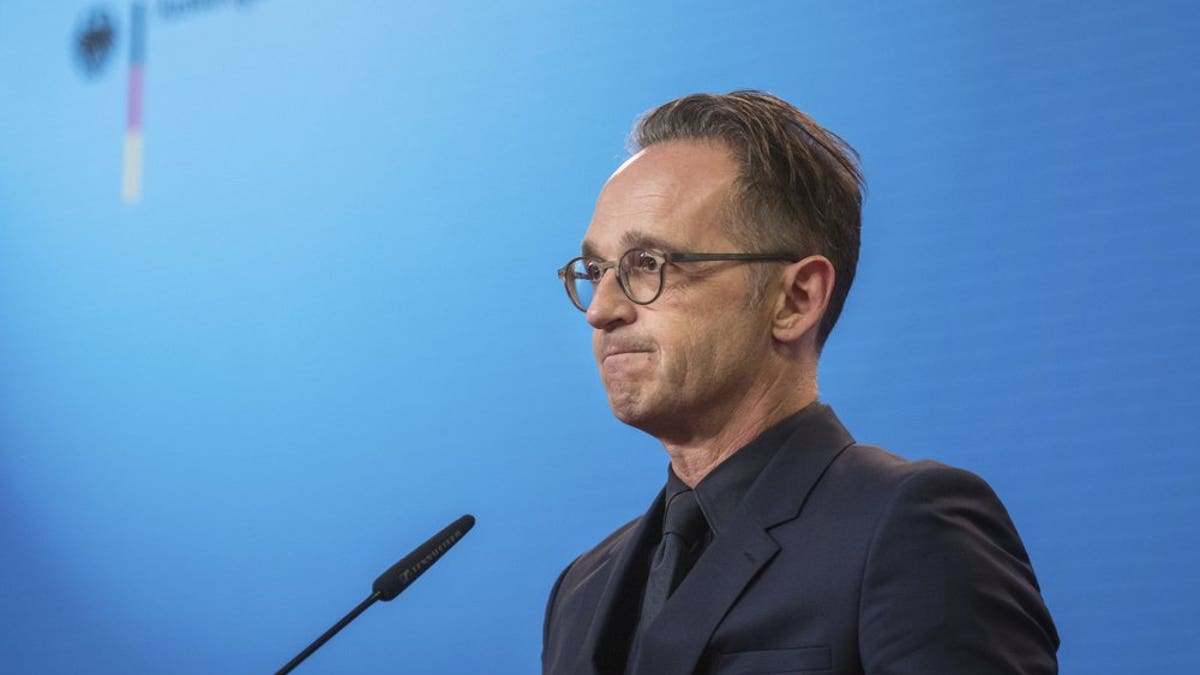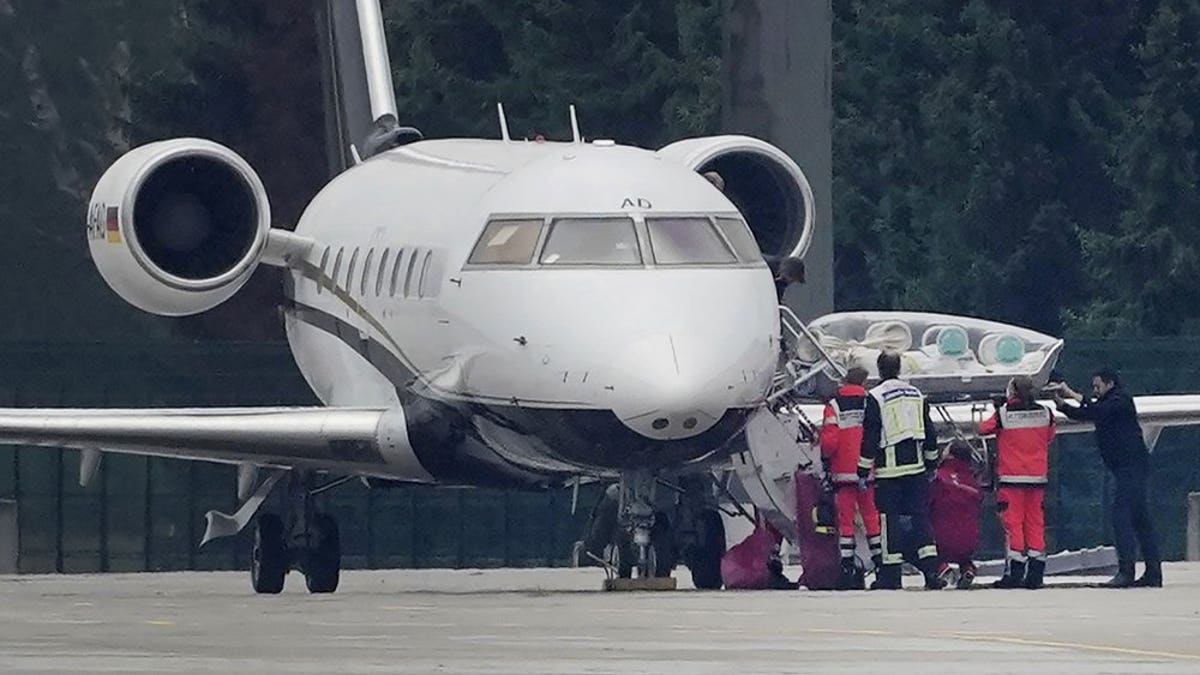Germany says Russian opposition leader Navalny was poisoned by Soviet nerve agent
Nerve agent previously used on former Russian spy and his daughter in England; Benjamin Hall reports.
Germany has increased pressure on Russia over the poisoning of Russian opposition politician Alexei Navalny, warning that a lack of support in the investigation could “force” Germany to rethink the German-Russian gas pipeline project.
Navalny, an outspoken critic of President Vladimir Putin and his government, fell ill on a flight to Moscow last month and was taken to a hospital in the Siberian city of Omsk. After a tense standoff in which Navalny’s wife and allies asked he be transferred to a Berlin hospital, doctors gave the go-ahead and allowed Navalny to move.

FILE-In this Sept. 2, 2020 file photo German Foreign Minister Heiko Maas attends a press conference at the Foreign Ministry in Berlin, Germany. Germany is increasing pressure on Russia over the poisoning of Russian opposition politician Alexei Navalny, warning that a lack of support by Moscow in the investigation could “force” Germany to rethink the fate of a German-Russian pipeline project. (Stefanie Loos/Pool via AP)
In Berlin, he has been in an induced coma as he was tested and doctors started treatment. Tests showed that he had been poisoned with a chemical nerve agent, Novichok. British authorities had previously identified the nerve agent as the poison used to target former Russian spy Sergei Skripal and his daughter in 2018 when the pair were staying in England.
The revelation has forced officials in a number of European nations to consider more aggressive measures to try and pressure Russia into cooperating with an investigation around the incident.
PUTIN CRITIC ALEXEI NAVALNY POINSONED BY NERVE AGENT NOVICHOK, GERMANY SAYS
France added pressure by suggesting the possibility of sanctions if Moscow fails to respond to demands for answers about Navalny’s poisoning.
“It’s a serious situation,” said French Foreign Minister Jean-Yves Le Drian, speaking on France Inter radio. “It’s serious firstly because it’s the poisoning of another opposition figure, and it’s serious because the substance that was used, Novichok, is banned.”

FILE-In this Aug. 22, 2020 file photo a stretcher is taken from special aircraft with the Kremlin critic Alexei Navalny on board at Tegel Airport in Berlin. Germany is increasing pressure on Russia over the poisoning of Russian opposition politician Alexei Navalny, warning that a lack of support by Moscow in the investigation could “force” Germany to rethink the fate of a German-Russian pipeline project. ( Michael Kappeler/dpa via AP)
“(The Russians) must now tell us the truth so that we can act accordingly ... When we say quickly, it’s quickly, that’s to say a week, now.”
Germany moved to apply its own pressure, suggesting that the nation might reconsider the building of a pipeline between the two nations.
“I hope the Russians won’t force us to change our position regarding the Nord Stream 2” pipeline being built under the Baltic Sea, German Foreign Minister Heiko Maas told weekly Bild am Sonntag.
Maas also said that “if there won’t be any contributions from the Russian side regarding the investigation in the coming days, we will have to consult with our partners.”
WHITE HOUSE CONDEMNS POISONING OF PUTIN CRITIC AS 'COMPLETELY REPREHENSIBLE'
Maas also did not rule out the possibility of sanctions against Russia should the nation fail to respond.
“Whoever demands this has to be aware of the consequences,” Maas added. “More than 100 companies from 12 European countries are involved (in the construction), about half of them from Germany.”
Prime Minister Angela Merkel personally offered the country’s assistance in treating Navalny. He’s now in stable condition at Berlin’s Charite hospital, but doctors expect a long recovery and haven’t ruled out that the 44-year-old could face long-term effects to his health.
CLICK HERE TO GET THE FOX NEWS APP
Merkel previously rejected the possibility that the case should be linked to the pipeline’s development.
The Associated Press contributed to this report.








































